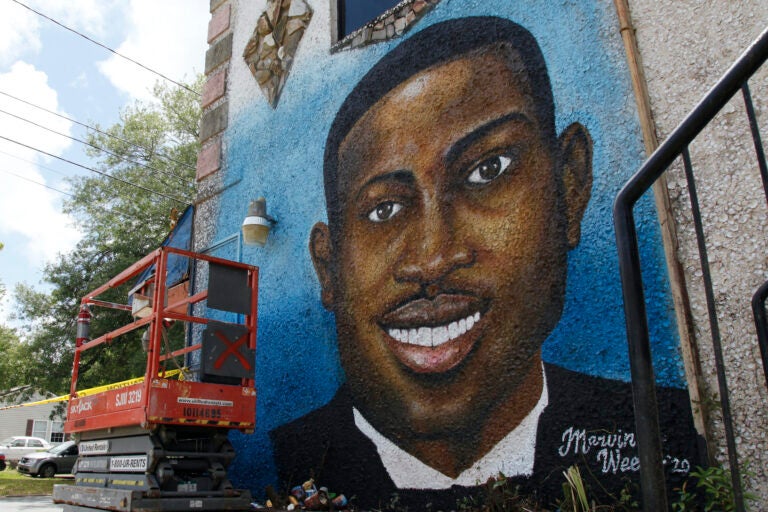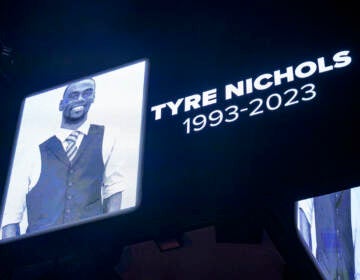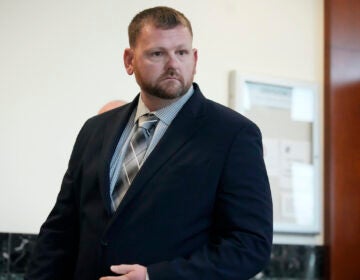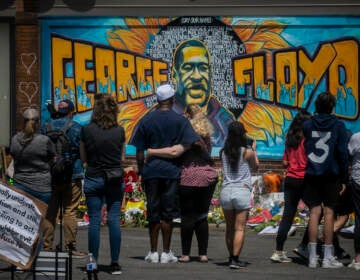The jury has begun deliberations in the trial over Ahmaud Arbery’s killing

In this May 17, 2020, photo, a mural of Ahmaud Arbery is on display in Brunswick, Ga., where the 25-year-old man was shot and killed in February. It was painted by Miami artist Marvin Weeks. (AP Photo/Sarah Blake Morgan)
Jurors have begun deliberations in the case of the three men accused of murder and other charges over the killing of Ahmaud Arbery in Glynn County, Ga., in February 2020.
The nearly all-white jury entered deliberations Tuesday after prosecutors made their final rebuttal in the case. In her rebuttal, lead prosecutor Linda Dunikoski outlined the charges against the defendants and made the case for their guilt.
She told the jury the men had no right to claim self-defense as they were the ones who started the confrontation with Arbery, chasing him for roughly five minutes.
“You can’t claim self-defense if you are the unjustified, initial aggressor,” Dunikoski said. “This isn’t the Wild West.”
Prosecutors and defense attorneys made closing arguments on Monday.
Travis McMichael, his father, Greg, and William ‘Roddie’ Bryan have all been charged with Arbery’s murder. Arbery, 25, was jogging through a suburban neighborhood when the three men started pursuing him in pickup trucks. Travis McMichael shot Arbery dead.
After the prosecution’s rebuttal, Superior Court Judge Timothy Walmsley gave the jury its instructions before sending them out of the courtroom to begin deliberations. The jury will face several complicated legal questions, including what’s justifiable under the state’s now-repealed citizen’s arrest law.
The men all face the same nine counts: one count of malice murder, four counts of felony murder, two counts of aggravated assault, one count of false imprisonment and one count of criminal intent to commit a felony.
The defendants have all entered a plea of not guilty to the charges.
Dunikoski said that the men threatened Arbery with their trucks, chasing him and then confining him with their vehicles.
She said there’s no evidence Arbery ever committed a crime, nor was he seen on surveillance video stealing anything from a construction site he walked through on several occasions.
The state argued that the defendants had not witnessed Arbery committing any crime on the day he was killed, nor had knowledge of any such offense. Dunikoski said that when a 911 dispatcher asked Greg McMichael what his emergency was, McMichael said, “There’s a Black male running down the street.”
In her final remarks to the jury, Dunikoski said that the case isn’t about whether the defendants are good people or bad people. “It’s about responsibility. It’s about holding people accountable and responsible for their actions,” she said. “Nobody gets a free pass.”
9(MDAzMzI1ODY3MDEyMzkzOTE3NjIxNDg3MQ001))




